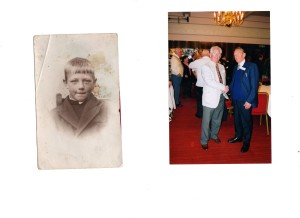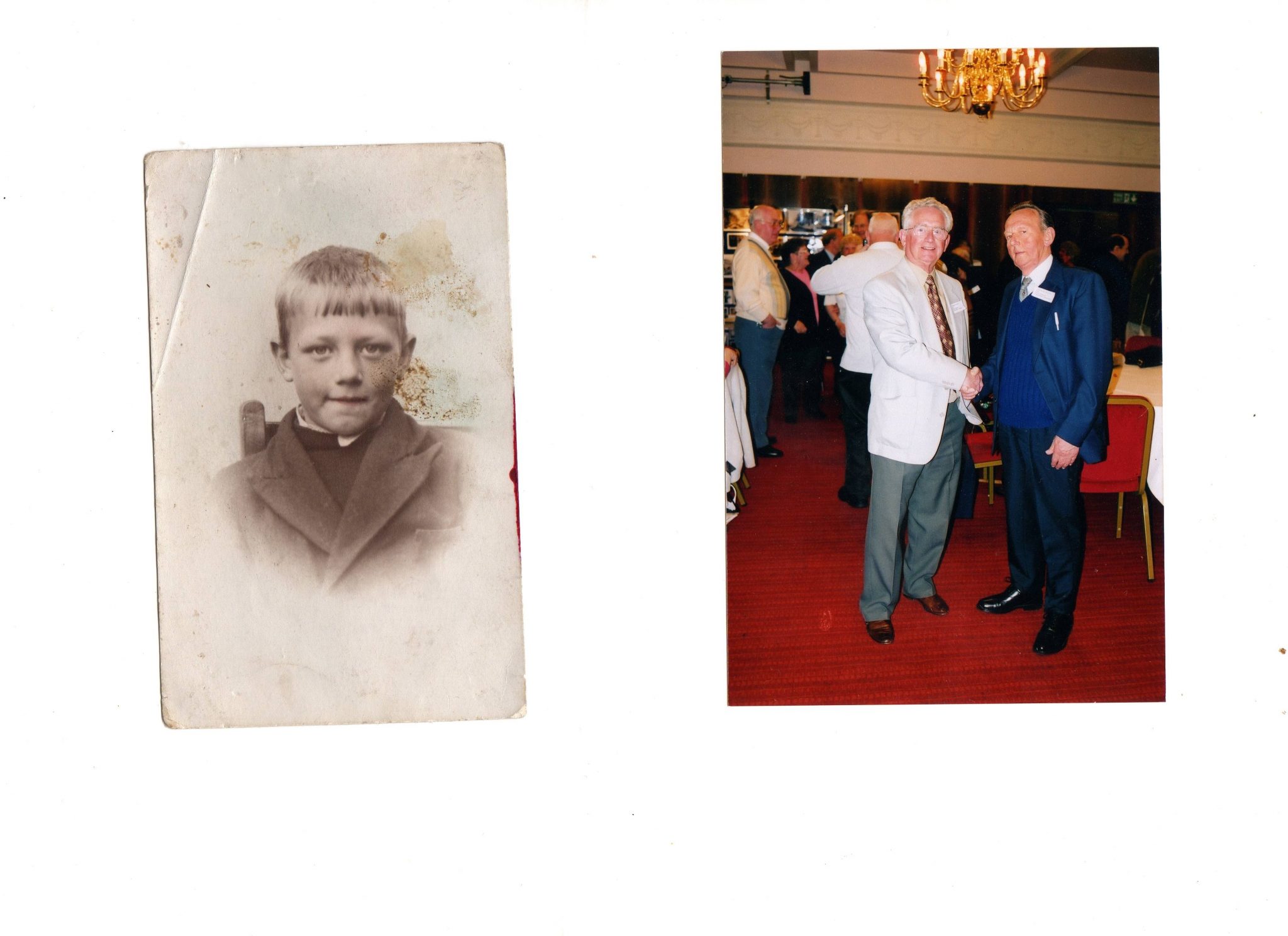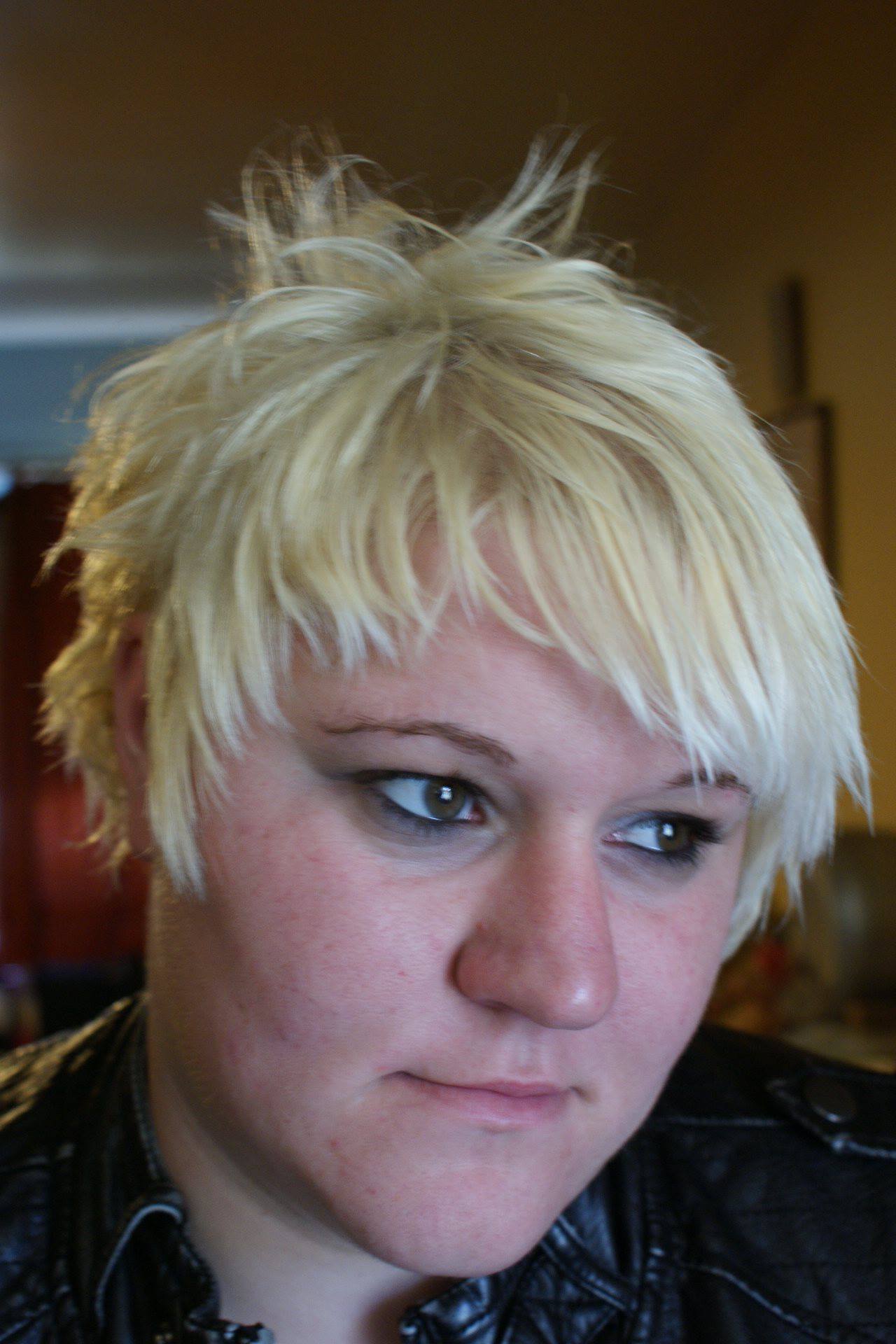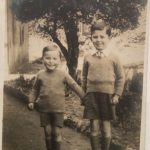As another remembrance day goes by, we were delighted to be sent this memoir by Leslie Checkley, of his memories as a child in World War Two…
BY LESLIE FRANK CHECKLEY 
Over 65 years ago – it seems a long time to remember back to all that happens in ones life, but when something as significant as a war occurs it impresses many things on ones mind, some tragic, some unusual, some extraordinary, and even some pleasant or funny.
I was an innocent twelve year old in 1939 when it was announced that Britain had
declared war on Germany, there had been murmurings among the “grown up’s” for sometime but youngsters like myself had no idea of the gravity of the comments we were hearing.
Who was Moseley? that someone would go around the streets shouting about, that people would chase away, calling after him “Traitor”. And who were the people dressed in Brown Shirts’ who chalked ‘streak of lightening like shapes’ on the walls. And why, suddenly, was the icecream man, (S.Verrechia*) who for years without fail, regularly came down the street and was looked forward to by all, attacked with abuse and pelted with stones and balls of mud until he no longer came. All these things we did not understand but were soon to find out.
My brother Dennis and I lived in a district called Ladywood in the City of Birmingham. We were the youngest two of a family of eleven children.
Our environment consisted of more bricks and mortar than trees and grass, and although not deprived of such basic needs as food and clothing, holidays were few and far between. These were usually confined to Bank Holidays, probably a trip to the local Botanical Gardens, or a day trip to Blackpool, where the cost was made available by my mother saving in a club fund for a whole year. So, apart from a local park our outlook day by day was quite drab.
By August 1939 we were becoming more and more aware of the words “War and Evacuation”, which we children did not understand, but knew they were causing a lot of excitement. Chatter in the play ground was usually centred around asking each other “Are you being ‘Vacuated? but not really understanding what it meant.
September the 1st descended upon us with some bewilderment. The adults in the house were fussing about, making sure my brother and I were washed and dressed, and supplied with a packed lunch in a brown paper bag. (there were no Plastic bags in those days). over our shoulders we carried a brown cardboard box, held by string, containing a gas mask. Pinned on to our coat was a large tally giving our name and probably the name of our school. Last but not least some food and a change of clothes.
When the time came for us to go to school our mother clutched us both to her, and then with tears in her eyes allowed my two elder sisters to take us to the school playground. The playground quickly filled with similarly clad children accompanied
by adults. ( * Italians came into the war against us and Verrechia is an Italian name.)
My next recollection of that morning was being on the platform of the local railway station (called Snow Hill), a sea of people busying themselves shuffling us children into groups.
Eventually a train came into the station and amid tears and shouts of “Goodbye” and “Behave yourself ” we children and teachers filled the carriages. We did not know where we were going, or for how long, or who we would be staying with. Looking back it was probably a good thing that we were too young to understand.
We soon settled down, talking, singing or playing “I Spy” etc, and eating our sandwiches and fruit. At last the train stopped and we all alighted onto the platform, which appeared to be in the middle of nowhere. We were ushered into coaches (called Charabancs then) and driven to a small country town, which I later learned was called Ledbury in Herefordshire.
Here we were placed in a long queue and gradually, one by one, entered a small building were the skin on our arms, leg and face were examined. Any pimples spots,
or scratches were daubed with a purple dye substance, (probably an antiseptic). We were then ushered into another queue.
We eventually boarded the coaches again, and were driven off along country lanes. Our coach, holding about twenty children and two teachers, finally arrived at a village hall in a place called Ashperton. The other coaches went on in different directions.
Still bewildered, we filed into the cold village hall. We children were grouped at one end of the hall, whilst local people gradually filled the hall. One lady came to me, looked me up and down, and said to someone” I’ll take this one”. Upon hearing this, and with my mother’s words “Look after Dennis” still ringing in my ears, I took hold of my brother’s hand and said, quite defiantly, “I’m not going without him”. After some thought the lady agreed, and my brother and I went out of the hall with her, quite oblivious of others around us.
Our new life started with a happy event the moment we were told to get into a car. There were not many cars about then, and to actually ride in one was out of this world for us.
Soon we turned into a gateway and along a long driveway to stop outside a large house, on its own in the middle of ‘nowhere’. We had arrived at our new home!
After a wash, and a meal in a large kitchen we were taken by a young lady up a wide
stairway to show us what was to be our bed room. Not in a cold damp attic, such as we had left earlier in Ladywood, but a large warm room with a bed each, and only one floor up, (we had shared one bed at home) along a corridor. We later used to slide along its highly polished floor on a mat at the top of the stairs.
We learned later that the young lady was the housemaid, her name was Betty, and
told us she would be looking after us. She was a very kind and helpful person, we liked her very much.
As I recall my brother and I slept together that night feeling warm and comfortable but rather insecure.
From the moment we awoke the next morning, and after coming acquainted with the new strangers, such as a cook, various farm workers and the small daughter of the lady who fetched us, we settled down to life on a farm. Everyone was very kind and helpful. I think we even forgot why we were there in the first place.
We explored our surroundings as though we had landed on another planet, seeing things that only existed in books. such as large expanse of fields, hedgerows, fruit trees, with fruit on them, walnut and hazelnut trees, lots of different birds that made unusual sounds, rabbits ran freely in the fields and on the railway banks.
We climbed ladders to help pick the fruit off the trees. We went on a horse drawn
cart along quiet country lanes, actually holding the reigns at times, taking the fruit to the jam factory in Ledbury.
We fed chickens and animals, helped to herd sheep and cows, milked cows by hand, rode on the hay carts and helped to make hay stacks. After a long day we drank freshly crushed apple juice or drank freshly cooled and filtered milk.
We were introduced to Hop picking, an experience in itself. Apart from seeing something new (we hadn’t heard of Hops before) we were picking them off ‘ bines ‘
ourselves and getting paid for it, also meeting all manner of people such as gypsies and folk from other towns who spoke differently.
When the Hop picking season was finished, the heaps of bines where piled on to large bonfires and everyone sat around singing and talking to each other.
Our school was in Ashperton village about three and a half miles from where we lived, and with packed lunches and a bottle of fresh milk we walked to and from the village daily.
At first all the evacuees were taught in the village hall in groups according to age. However, we were eventually integrated with the village children in their school.
One day my brother and I were moved to a new home nearer the school, this was a small cottage with an elderly couple who also had two other evacuee boys there. As we were nearer to our school pals, and the school, we soon got used to our new surroundings.
By this time the ‘phoney war’ period was encouraging parents to gradually fetch their children home as it looked as though there was not going to be any danger as had been previously expected. By Christmas my brother and I arrived home to the snow covered back streets of Birmingham, and nights in cold damp air raid shelters. As the schools were being used for war time purposes our schooling was carried out in a private house for only three hours a day.
Back home in Ladywood life was never the same again, unusual things were happening, some people were starting to wear arm bands with the letters ARP on them which we learned meant ‘Air Raid Precautions,’ and a ‘W’ on a metal hat which they carried always, strapped to their shoulder along with a haversack that contained a Gas mask and First Aid equipment. These people were Wardens and when an air raid was expected, would direct people into shelters, usually underground for safety against falling bombs.
Some people were issued with ‘Tin Hats’ as these metal hats became known, and would go on the roofs of large buildings to look out for enemy planes, and send a warning for Sirens to be sounded. These people were called’ Spotters.’ They would also attempt to extinguish incendiary bombs. This was very dangerous work and many were killed. All these people went to work during the day and still carried out their duties should the need arise.
One activity for us children was to collect any metal objects that people did not want such as old bicycles, garden tools, pots and pans etc, these were taken to the playground at the school and from there they were taken to be melted down and made into guns or bombs, the pots and saucepans were mostly made of Aluminium and were used to make Airplanes.
When the bombing started, sirens sounded and we were awoke and hurriedly taken into air raid shelters, our nearest shelter was not under ground but a brick building which had been built near the houses, it held about thirty people when full but everyone did not always go there as they became more used to the situation, mainly believing that they were no more safe than under the stairs in their own home.
The raids were during the winter months mainly, and being in the shelter was dark, cold, damp, and smelly. Some people would take blankets to lie on, but the grownups would mostly stand by the entrance (there were no doors on the shelter). It was difficult to sleep with the noise of bombers going over, Bombs exploding and anti-aircraft guns firing all night, also the people would sing the latest song to keep there spirits up and I expect to help keep us children from being frightened.
The sirens would sound when the planes had gone and everyone would make there way home.
Later in the morning the scenes in the roads were of chaos, buildings were dangerously half standing with their furniture, that was not on the ground, hanging precariously out of the holes in the walls blown out by the explosions of the bombs.
There was rubble all around the streets, firemens hoses lying about, some still being used to damp down burning material.
During the raids we could hear the Shrapnel (pieces of metal from the bombs and shells) falling on the roofs, it was great fun to collect as much as you could and bargain with your friend to ‘swap.’ Some pieces were still warm.
One thing of importance was getting water. The mains would be off either by the use needed for the firemen or because they had been damaged and were unsafe to use because dirt getting into the pipes making them unhealthy. At various points in the streets, pipes were connected to the underground mains so that they stood above the ground with a tap on the top, queues of people would form up to fill all kinds of containers, such as buckets, saucepans jars or anything to carry water home. This water was very precious and was very carefully used. Very often the water was a brownish colour so water to drink or used in cooking always had to be boiled first.
When I reached the age of 14 I started work in a factory were a number of munitions were made, there were 25 pounder field guns, mine sinkers along with the usual product of the factory. During one air raid the factory was bombed, the bombers must have had a good idea were they were going as a bomb dropped directly on the department building the Field Guns, (3 Spotters were killed that night) the next morning, when I arrived at the factory for work, there was building rubble and glass from the windows spread all around, before work could continue we had to tidy up the departments and search for our tools which had been scattered about by the explosions.
I was moved to a department that made Smoke guns. These were a devised with a large tube on the end of a metal frame, the frame held a bullet which was fired by a wire cable similar to a bicycle brake cable. This device was attached to the outside of a Tank. Inside the tube was placed a canister (this was a Smoke Bomb).
The cable fed into the inside of the Tank and was activated by one of the soldiers causing the Smoke Bomb to be thrown forward and exploding creating a smoke screen in front of the Tank.
During the years the war was on, the radio (there was no Television then) news broadcasts were used to follow the progress of our fighting men abroard, this could be done by sticking coloured pins into a map, which had been printed by the newspapers.
Eventually the war ended and many parties and much singing and dancing in the street was had.
“A lot of water has flowed under the bridge”, as they say and the war years have left a lot of memories, some good and some bad, but certainly impressive.
Do you have an article you would like to share with us? Contact us here.



